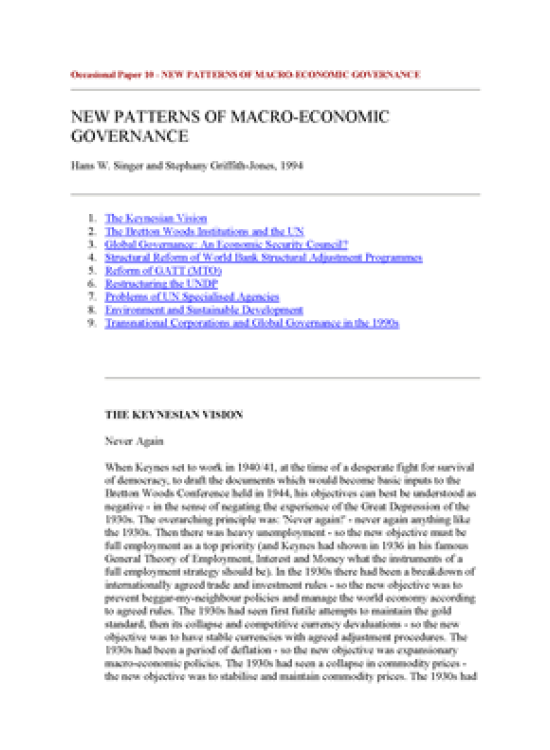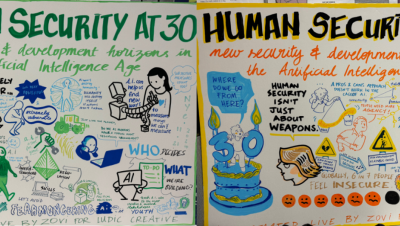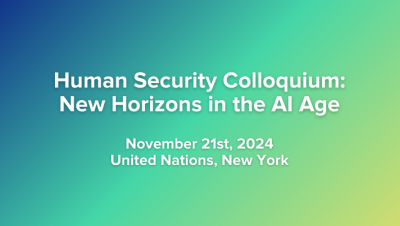New Patterns of Macro-Economic Governance

Download Report by Language
Document
hanswsinger.pdf
(44.4 KB)
Citation
Singer, Hans W., Griffith-Jones, Stephany. 1994. New Patterns of Macro-Economic Governance. New York.
New Patterns of Macro-Economic Governance
Posted on: January 01, 1994
When Keynes set to work in 1940/41, at the time of a desperate fight for survival of democracy, to draft the documents which would become basic inputs to the Bretton Woods Conference held in 1944, his objectives can best be understood as negative - in the sense of negating the experience of the Great Depression of the 1930s. The overarching principle was: 'Never again!' - never again anything like the 1930s. Then there was heavy unemployment - so the new objective must be full employment as a top priority (and Keynes had shown in 1936 in his famous General Theory of Employment, Interest and Money what the instruments of a full employment strategy should be). In the 1930s there had been a breakdown of internationally agreed trade and investment rules - so the new objective was to prevent beggar-my-neighbour policies and manage the world economy according to agreed rules. The 1930s had seen first futile attempts to maintain the gold standard, then its collapse and competitive currency devaluations - so the new objective was to have stable currencies with agreed adjustment procedures. The 1930s had been a period of deflation - so the new objective was expansionary macro-economic policies. The 1930s had seen a collapse in commodity prices - the new objective was to stabilise and maintain commodity prices. The 1930s had been a period of rising protectionism, and narrowly national scrambles to achieve self-sufficiency and balance of payments surpluses - so the new objective was to move towards liberal and agreed rules for expanding world trade and to support countries in balance of payments deficit. Above all, the 1930s had seen the withering away of the League of Nations - so the need was to build a new and stronger United Nations to provide the political and social security indispensable for an expanding world economy.

